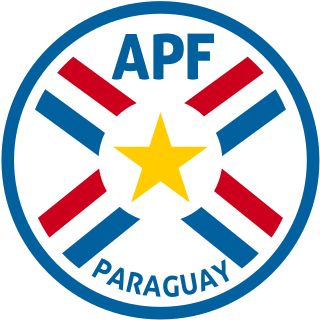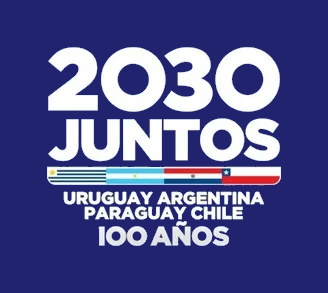Other uses
- Group B streptococcal infection or strep B
- Army Group B, three German Army Groups in World War II
- the group of industrialized countries ("The West") in UNCTAD
- Group B posts in the Civil Services of India
Group B was a set of regulations introduced in 1982 for competition vehicles in sportscar racing.
Group B may also refer to:

The 2002 FIFA World Cup was the 17th FIFA World Cup, the quadrennial world championship for men's national association football teams organized by FIFA. It was held from 31 May to 30 June 2002 at sites in South Korea and Japan, with its final match hosted by Japan at International Stadium in Yokohama.

The 1990 FIFA World Cup was the 14th FIFA World Cup. It was held from 8 June to 8 July 1990 in Italy, the second country to host the event twice. Teams representing 116 national football associations entered and qualification began in April 1988. 22 teams qualified from this process, along with host nation Italy and defending champions Argentina.

The Chile national football team represents Chile in men's international football competitions and is controlled by the Federación de Fútbol de Chile which was established in 1895. The team is commonly referred to as La Roja. Chile have appeared in nine World Cup tournaments and were hosts of the 1962 FIFA World Cup where they finished in third place, the highest position the country has ever achieved in the World Cup.

The Paraguay national football team represents Paraguay in men's international football competitions, and are controlled by the Paraguayan Football Association. Paraguay is a member of CONMEBOL. The Albirroja has qualified for eight FIFA World Cup competitions, with their best performance coming in 2010 when they reached the quarter-finals. A regular participant at the Copa América, Paraguay have been crowned champions of the competition on two occasions. Paraguay's highest FIFA World Rankings was 8th and their lowest was 103. Paraguay was awarded second place with Best Move of the Year in 1996 for their rise in the FIFA Rankings.
A total of 37 teams entered the 1954 FIFA World Cup qualification rounds, competing for a total of 16 spots in the final tournament. Switzerland, as the hosts, and Uruguay, as the defending champions, qualified automatically, leaving 14 spots open for competition.
A total of 55 teams entered the 1958 FIFA World Cup qualification rounds, competing for a total of 16 spots in the final tournament. Sweden as the hosts and West Germany, as the defending champions, qualified automatically, leaving 14 spots open for competition.
A total of 107 teams entered the 1978 FIFA World Cup qualification rounds, which began with the preliminary qualification draw on 20 November 1975 at Guatemala City, competing for a total of 16 spots in the final tournament. Argentina, as the hosts, and West Germany, as the defending champions, qualified automatically, leaving 14 spots open for competition.
The following are the association football events of the year 2000 throughout the world.
The following are the association football events of the year 1988 throughout the world.

Seventeen countries have been FIFA World Cup hosts in the competition's twenty-one tournaments since the inaugural World Cup in 1930. The organization at first awarded hosting to countries at meetings of FIFA's congress. The choice of location was controversial in the earliest tournaments, given the three-week boat journey between South America and Europe, the two centers of strength in football at the time.
The South American Under-20 Women's Football Championship is an international association football competition for women's national teams. It is held every two years for South American players under the age of 20 and serves as a qualification tournament for the FIFA U-20 Women's World Cup. In its inaugural year, 2004, it was played by U-19 players.
The following are the statistics for the 2010 FIFA World Cup which took place in South Africa from the 11 June to 11 July 2010. The statistics include a list of players who were successful in scoring at least one goal during the tournament, players who assisted in scoring goals, overall team statistics, the most significant information regarding winning and losing teams, match awards, disciplinary measures, overall results and stadiums involved in the tournament.

Nine of ten members of the South American Football Confederation (CONMEBOL) have competed in the men's FIFA World Cup finals. National association football teams from CONMEBOL have won the tournament nine times, including Brazil's record five championships. CONMEBOL countries have hosted the finals five times.

The Uruguay–Argentina–Chile–Paraguay 2030 FIFA World Cup bid is an intended joint bid to host the 2030 FIFA World Cup by Uruguay, Argentina, Paraguay and Chile. The tournament's name would be Southern Cone 2030 World Cup. The intended bid had initially been shared between only Uruguay and Argentina. The intended bid followed an earlier web movement claiming that FIFA should give Uruguay hosting rights for the 100th anniversary of the first World Cup, which was held in Uruguay. Argentina has interest as their national team played the final, which resulted in a defeat against the host team.
The 2030 FIFA World Cup will be the 24th FIFA World Cup, a quadrennial international football tournament contested by the men's national teams of the member associations of FIFA. The event will mark the centennial of the first World Cup.
The FIFA World Cup, sometimes called the Football World Cup or the Soccer World Cup, but usually referred to simply as the World Cup, is an international association football competition contested by the men's national teams of the members of Fédération Internationale de Football Association (FIFA), the sport's global governing body. The championship has been awarded every four years since the first tournament in 1930, except in 1942 and 1946, due to World War II.

The 2015 South American Under-17 Football Championship was the 16th edition of the biennial international youth football tournament organized by CONMEBOL for players aged 17 and below. It was held in Paraguay from 4 to 29 March 2015.
The following are the scheduled events of association football for the year 2015 throughout the world.